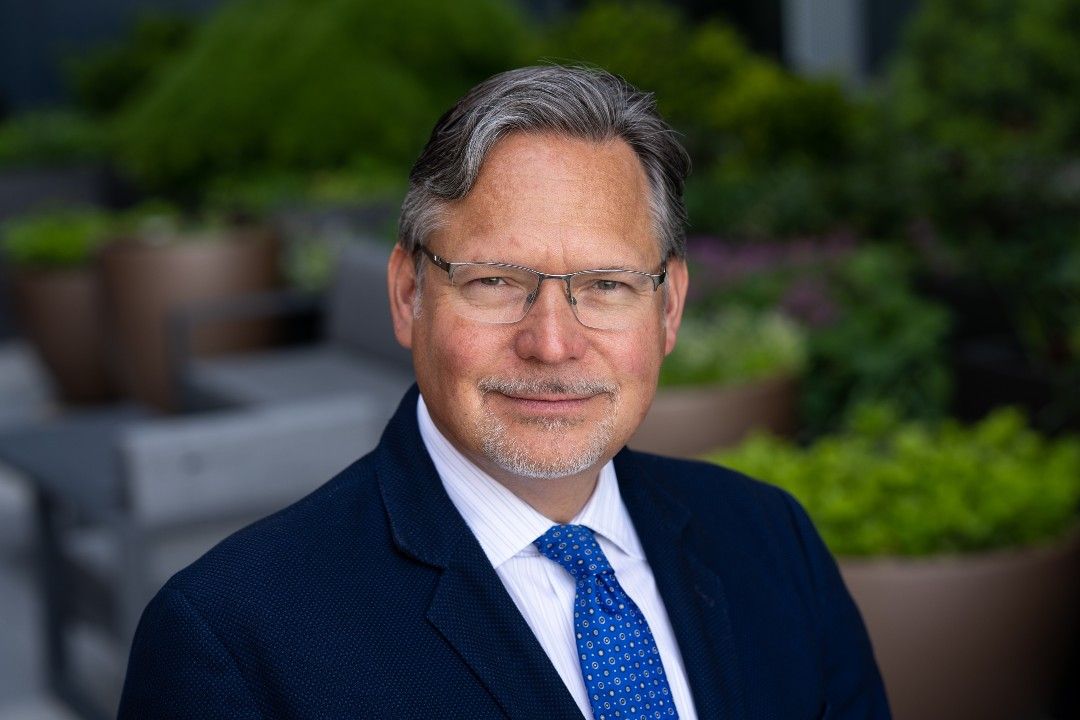Roswell Park Comprehensive Cancer Center and the University at Buffalo (UB) have launched a collaborative clinical trial that will make a new investigational treatment option available to local patients who are hospitalized and diagnosed with critical or severe COVID-19, the disease caused by the new Coronavirus, which has already sickened more than 163,000 patients in the United States. The study, led by Igor Puzanov, MD, MSci, FACP, of Roswell Park, will allow eligible patients at four local medical facilities to participate in a large international study of the anti-inflammatory agent sarilumab.
“Some of the ways that COVID-19 affects the body are similar to how cancer and auto-immune conditions affect the body, so we can draw on what we know from those fields to address the pressing challenge of how best to treat the novel coronavirus. We are applying the extensive expertise in immunotherapies and the immune response that we have here at Roswell Park and UB, hoping that we can improve outcomes for individual patients and dampen the pandemic’s impact on Buffalo and Western New York,” says Dr. Puzanov, Director of the Early Phase Clinical Trials Program and Chief of Melanoma at Roswell Park and overall Principal Investigator on the trial, who has done extensive work with a similar drug, tocilizumab.
“In March, the U.S. Department of Health and Human Services announced a partnership with Regeneron to support a U.S. clinical trial of sarilumab in certain COVID-19 patients,” says Congressman Brian Higgins, who has been speaking with researchers at Regeneron in recent weeks. “The selection of Roswell Park, and other local partners, as collaborators on this study brings promising potential COVID-19 treatment to local patients enrolled in this trial and continues the longstanding tradition of Roswell researchers being at the forefront of breakthrough science.”
Co-Principal Investigator Gene Morse, PharmD, of the UB School of Pharmacy and Pharmaceutical Sciences will oversee protocol activities for the three additional local sites invited to participate in this study: Erie County Medical Center, in collaboration with John Crane, MD, PhD, Professor of Medicine in UB’s Jacobs School of Medicine and Biomedical Sciences; and Buffalo General Medical Center and Millard Fillmore Suburban Hospital, in collaboration with Jamie Nadler, MD, also Professor of Medicine in the Jacobs School.
“As a career-long investigator in viral diseases, I am excited by the advances possible for treating COVID-19 and HIV by applying new knowledge learned about the immune system by cancer researchers. And how fortunate we are that world-renowned Roswell Park scientists like Dr. Puzanov are right here in Buffalo,” says Dr. Morse, SUNY Distinguished Professor in the UB School of Pharmacy and Pharmaceutical Sciences and Director of UB’s Global Virus Network Center of Excellence.
“This clinical trial, which came together in a matter of days, is a great example of how collaborative research moves farther and faster than work any one of our centers could achieve alone,” notes James Mohler, MD, a urologist who is Associate Director and Senior Vice President, Translational Research and Chief of Inter-Institutional Academics at Roswell Park. “We hope to announce soon clinical trials of other new or repurposed drugs to help patients suffering from COVID-19 in Western New York and elsewhere.”
The local trial will be part of a large international clinical trial sponsored by Regeneron and Sanofi, the companies that make sarilumab. The drug, also known as Kevzara, is a monoclonal antibody that inhibits the interleukin-6 (IL-6) pathway by binding and blocking the IL-6 receptor. While it has been approved by the U.S. Food and Drug Administration as a treatment for moderate to severe rheumatoid arthritis, experts believe IL-6 inhibitors may help to prevent or control the overactive inflammatory response in the lungs of patients who are severely or critically ill with COVID-19 — a hypothesis based in part on preliminary data from a study in China using the similar agent, tocilizumab.
“This strategy does not treat COVID-19," notes Dr. Puzanov. "It’s designed to address some of its most damaging effects, caused by inflammation and cytokine storm. If it is proven effective in reducing or preventing severe lung injury in these patients, it could significantly reduce the need for ventilators. And that would truly be a big relief right now.”
The study is expected to enroll quickly and may only be open to new patients for a brief period.
Additional collaborative studies for COVID-19 and other diseases are anticipated through this network of clinical researchers led by Roswell Park and in collaboration with UB.
